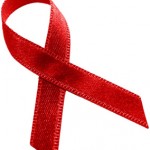It’s not often any more that statements and attitudes about HIV get me riled up. But, in the last few weeks, it’s happened twice. And it’s shown me some of the problems we still face in fighting the epidemic.
 The first came when Michael Weinstein, president of the AIDS Healthcare Foundation, made his now-infamous comments on Truvada and Pre-Exposure Prophylaxis (PrEP).
The first came when Michael Weinstein, president of the AIDS Healthcare Foundation, made his now-infamous comments on Truvada and Pre-Exposure Prophylaxis (PrEP).
For those unfamiliar with PrEP, it is a new HIV prevention technique where people who are HIV-negative and at high risk for infection are put on a regimen of Truvada, a medication used to treat HIV. Scientific studies have shown that PrEP is highly effective at preventing HIV infection than condoms.
PrEP is a development that much of the HIV treatment community has been very excited about. It puts another tool in the prevention tool box and has brought new hope that we are closer to an end to the epidemic.
In an interview in April, Weinstein called Truvada “a party drug” and continued AHF’s campaign to cast doubt on PrEP out of fear that wider use of it would lead to less condom use.
A couple of weeks later, a friend of mine posted a link to the latest trailer for “The Normal Heart,” HBO’s movie version of Larry Kramer’s brilliant play, on his Facebook timeline. Although most of the response was positive, there were comments like this:
“Why can’t we have a movie where gay men aren’t dying of AIDS?”
“This looks like a TV movie version of ‘Dallas Buyers Club.’”
Oy. Seriously? That quick of a dismissal? With no further investigation? Frustrating.
While unrelated, these events point out two of the bigger obstacles we face in fighting the HIV epidemic as it plows on through its fourth decade: too many longtime HIV activists spending too much time looking backwards; and too many young gay men who are tired of hearing about it.
Mr. Weinstein and many activists continue to treat the epidemic like its 1984 and everyone is dying. This is simply not the case. Today’s treatments can keep HIV-positive people alive and thriving for decades.
Conversely, too many young gay men (under the age of 40) just don’t want to hear about it anymore. They didn’t see all of their friends die horribly. And they have few people in their lives who did see the devastation of the ‘80s and early ‘90s. They’ve been told about HIV all their lives and to them it’s ancient history.
Both attitudes are irresponsible. Attacking new scientifically-proven HIV prevention methods because they don’t fit a 30-year-old paradigm will only lead to more infections.
And dismissing efforts to remind the world of our community’s history only ensures that events and people that should always be remembered are simply forgotten quickly.
For the first time since the HIV epidemic started, we may actually be gaining on the virus. But any progress we make can be quickly lost by those who are lost in the past and those who refuse to learn from it.
